

Discover more from The Cottage
Thank you for welcoming my words into your inbox. I’m so grateful for every reader of The Cottage. I treasure your companionship here.
If you have the means to support this newsletter, please consider becoming a paid subscriber. Those who contribute financially ensure that this place of thoughtful hope and community remains free and open to all.
The third and final guest musing this August comes from a good friend — Pastor Josh Scott of GracePointe Church in Nashville, TN, a non-denominational, inclusive, and progressive congregation. Josh is the author of Bible Stories for Grown-Ups (a book I highly recommend). He’s also new to Substack.
Today, Josh takes us on a field trip with Jesus. When I first read his essay, it reminded me that sometimes “Where are we?” is the most important question. Asking the right question can cascade into asking deeper questions about God in our lives.
And, since Josh took us on a Holy Land field trip, I decided to share a couple pictures with you of my “field trip” on the beach yesterday.
Where are you today? What new questions arise when you look around and underfoot? What is Jesus really pointing to?
Matthew 16:13-20, NRSVue
Now when Jesus came into the district of Caesarea Philippi, he asked his disciples, “Who do people say that the Son of Man is?” And they said, “Some say John the Baptist but others Elijah and still others Jeremiah or one of the prophets.” He said to them, “But who do you say that I am?” Simon Peter answered, “You are the Messiah, the Son of the living God.” And Jesus answered him, “Blessed are you, Simon son of Jonah! For flesh and blood has not revealed this to you but my Father in heaven. And I tell you, you are Peter, and on this rock I will build my church, and the gates of Hades will not prevail against it. I will give you the keys of the kingdom of heaven, and whatever you bind on earth will be bound in heaven, and whatever you loose on earth will be loosed in heaven.” Then he sternly ordered the disciples not to tell anyone that he was the Messiah.
“FIELD TRIP”
A Sunday Musing by Pastor Josh Scott
Is there anything more exciting for a kid than a school field trip?
They are the perfect combination of getting out of assignments for a day and exploring something new and unfamiliar. The most memorable trip for me was my eighth-grade field trip to our State Capitol. Growing up in the hills of eastern Kentucky, it felt like everything was so far away—this destination was a five-hour bus ride one-way—which only added to the sense of excitement and anticipation. Standing in the Capitol, the halls of power that governed life for me and everyone else, for the first time was an eye-opening experience. My thirteen year old self didn’t even have a category it.
I imagine that Jesus’s disciples shared that sentiment on their field trip to Caesarea Philippi—it was no doubt an experience that shattered their categories and expectations. Located some twenty-five miles north of their home base in Galilee, it probably felt like another planet. They had not often, if ever, been in a city so influenced by the Roman world, and yet it is this strange place that would serve as the backdrop for a life-altering conversation between Jesus and his disciples.
Often when this story comes up we turn our attention to Peter’s confession and the endless debate about exactly who, or what, the rock is on which Jesus builds the church. It’s an interesting debate to engage.
However, it’s not where my attention went as I recently read through this passage once again. One of the wonderful things about literature, like the Bible, is the way a text that we are so familiar with can still surprise us if we keep coming back to it. One such surprise happened to me this week.
The two words that grabbed my attention this time through the text were Caesarea and Philippi. It seems to be a significant detail, otherwise why even name the place where this conversation between Jesus and his disciples occurred? If we spend a moment understanding what this place was and meant, we might see the larger claim being made through this text.
Before it was Caesarea Philippi it was known as Paneas, and was devoted to the worship of a half-goat, half man deity named “Pan.” Just a few decades before our story the Roman emperor, Augustus, had placed governance of Paneas in the hands of Herod the Great.
To express his gratitude Herod built a large temple made of white marble dedicated to his benefactor, Caesar Augustus. After Herod died in 4 BCE, his son Philipp inherited governance of the territory, and a rebrand commenced. Paneas became Caesarea Philippi, named after Caesar Augustus and Philipp himself. It was a place that represented the power of the empire and reiterated the values of imperial theology: Caesar is lord, and Rome wins at any cost.
It was also the place Jesus chose to take his disciples to ask them a question: “Who do you say that I am?”
He’s not asking them if they affirm the Nicene Creed, or if they are on the “correct” side of the debates and disagreements that would divide and define the church in the centuries to come. In a place where the power and methods of the empire were evident, and where Caesar was clearly lord, Jesus is asking his disciples if they align with the empire’s means and ends, or with his Kingdom of God message. Jesus and Caesar embodied two radically different visions for the world, and they implemented dramatically opposite methods to bring that vision to bear.
Peter’s response, then, isn’t just checking off a theological box, but a declaration of commitment to the Way of Jesus, not just as a belief system, but as an actual WAY of bringing the Kingdom on earth as it is in heaven. To call Jesus God’s Messiah/Christ, as Peter does here, isn’t just a claim about Jesus; it’s also a claim about God. For Jesus’s earliest followers this declaration was a way of affirming that Jesus’s message of nonviolence, abundance, generosity, compassion, and inclusivity align with the very character of God.
I think western Christianity finds itself today at a Caesarea Philippi –like moment. Christian Nationalism is presenting a Caesar-like Jesus, who is willing to dominate anyone to achieve his ends—those being life controlled by white, cis, straight men. Though Jesus didn’t bow to the tempter to gain the kingdoms of the world, some of his followers are enthusiastically doing so today. In the face of this rising allegiance to a counterfeit Christ, the Jesus of history has a question for us: “Who do you say that I am?”
Our answer will determine the future of Christianity in the West, and have a deep impact on billions of human lives. Will we seek to learn and live the Way of the Jesus we meet in the Gospels? Will we continue to embrace the foolishness of the cross, meaning the commitment to love, even when it costs us? How will we think about Jesus’s teaching on nonviolence and his call away from scarcity and into abundance (because when everyone shares what they have there will always be enough for all of us)? These are the Caesarea Philippi questions that we must answer in our own day.
A BEACHY MINI-REFLECTION
from Diana
As you know, I’m at the beach in North Carolina. The jellyfish aren’t as numerous (🙏🏻). Yesterday, on my walk, I saw some something bright and sparkly in the sand. I thought it might be glass. I picked it up. It was this tiny silver shell.
Then, I noticed that this shiny little treasure was just one of hundreds of tiny shells. I carefully picked up others from the sand, marveling at how small and seemingly fragile they were, as well as their many patterns and colors. They’d been tossed by the sea and yet landed on the shore in nearly pristine condition, these miniature versions of these more sizable kin.
Instead of jellyfish, the edge of the ocean was now covered with these wee wonders. I gently pried them from the sand with my fingernail, examined each one, and filled my pockets with mini-shells. I don’t even know how long this teeny collection process took — I was lost in the contemplation of shells, in awe of small.
And that’s what I wanted to share with you this morning — awe needn’t be big and dramatic. Awe can be minute and ordinary (what is more mundane than shells on a beach?), it is about attention and attentiveness. Finding it needn’t take a special adventure or vacation. Sometimes wonder is right at your feet, maybe even underfoot, just waiting to be seen.
To consider the beauty of small fits well with Josh’s reflection today. After all, Jesus’s building plan included mustard seeds, yeast, pearls, lilies of the field, sparrows, lost sheep, five loaves and a couple of fish, and little children.
Perhaps the greatest heresy of Christianity is thinking big. Maybe the rock Jesus pointed to in his conversation with Peter wasn’t a temple stone, a boulder, or mountain. It might have been a pebble. Can you imagine the look on the disciples’ faces? That tiny rock, that nugget? That will prevail against the gates of Hades?
People were bound to misunderstand. They’d turn this into something big. Another empire, maybe. Best not tell anyone.
It is hard to grasp the God of small things, whose kingdom finds its fullest expression within.
Do not despise these small beginnings,
for the LORD rejoices to see the work begin.
Zechariah 4:10, NLT
INSPIRATION
Simplicity of living, as much as possible, to retain a true awareness of life. Balance of physical, intellectual, and spiritual life. Work without pressure. Space for significance and beauty. Time for solitude and sharing. Closeness to nature to strengthen understanding and faith in the intermittency of life: life of the spirit, creative life and the life of human relationships. A few shells.
— Anne Morrow Lindbergh
There’s a moment when I’m touched
by the sky inside the sky, the song
inside the song, the apple inside the apple.
It’s as if each bit of the world is itself,
only more so, and it reaches in
to trace the scaffolding of my life,
charging me with its utter purity,
its incontestable presence, as if to say
This, this is what it is to be alive,
and I hum with it, pulse with it,
glow with the wonder of it—
Rain. Rhubarb. Sand. Blood.
This. This. This. This.
This. This. This.
— Rosemerry Wahtola Trommer, “Naming a Good Day,” please consider signing up for her daily poems.

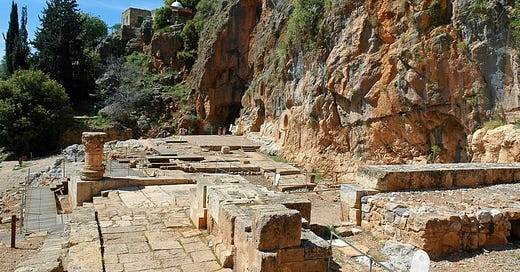



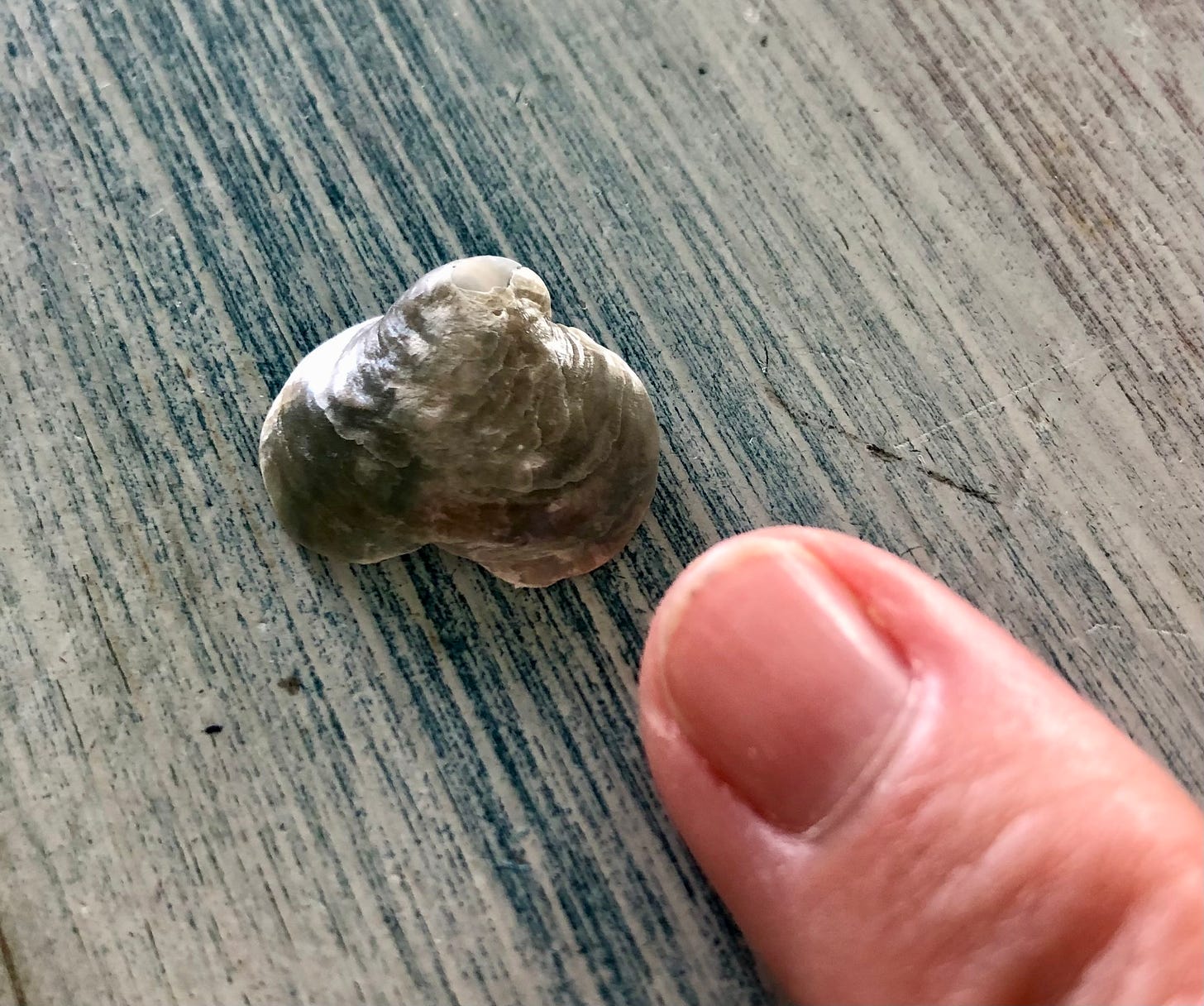
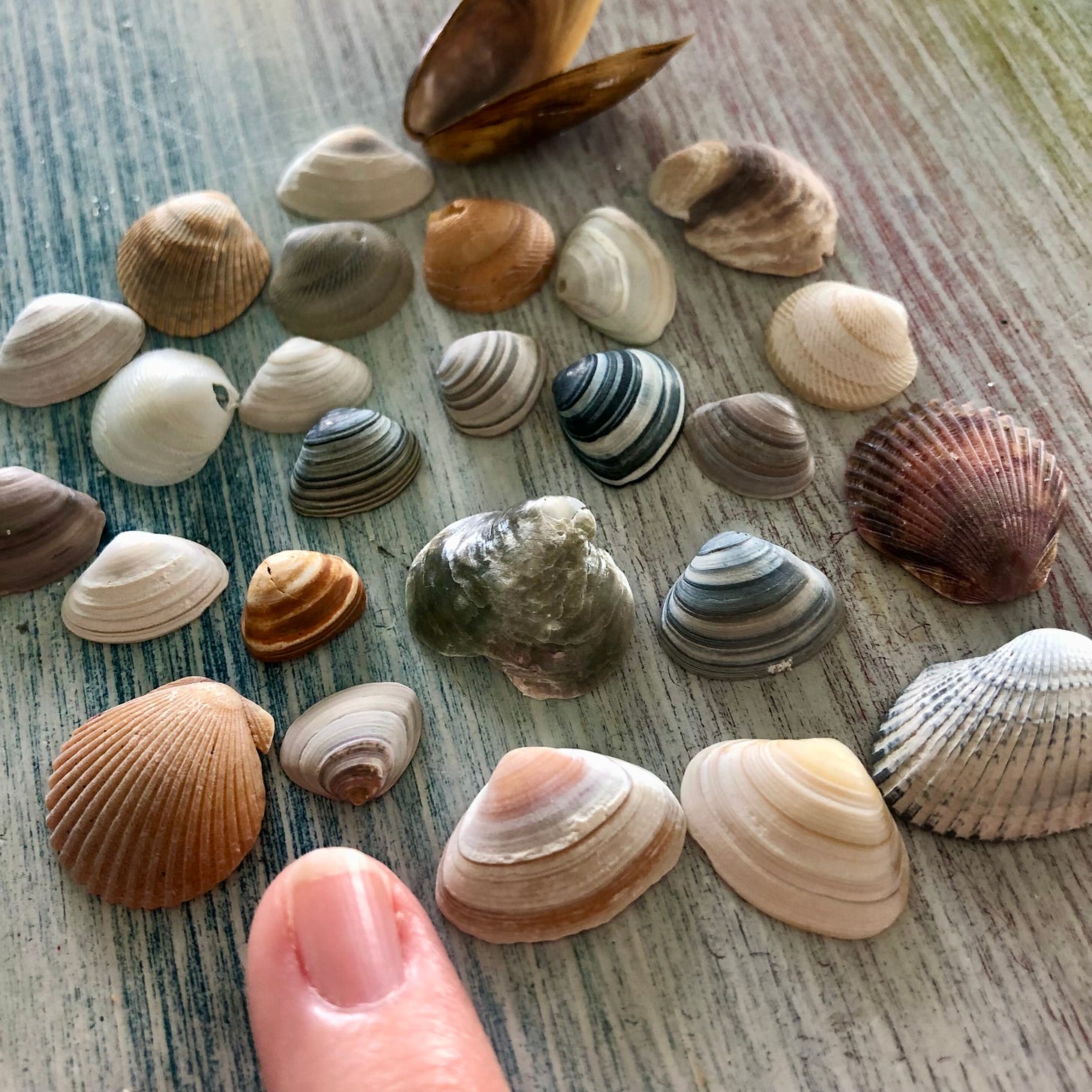
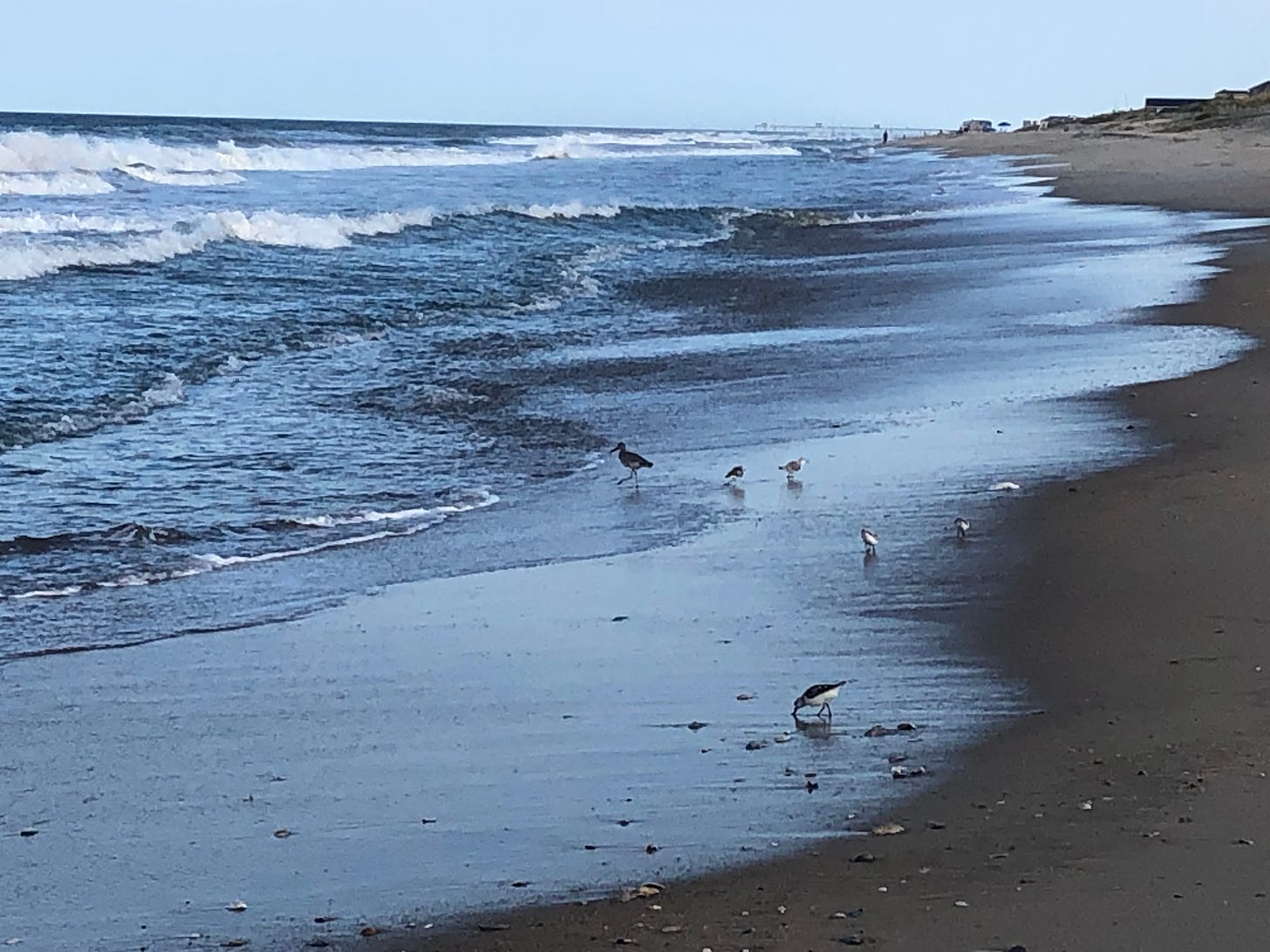





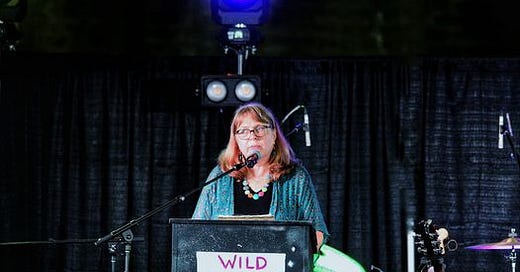

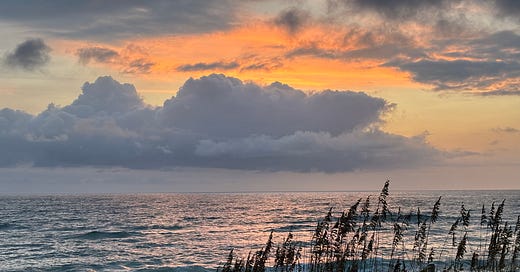

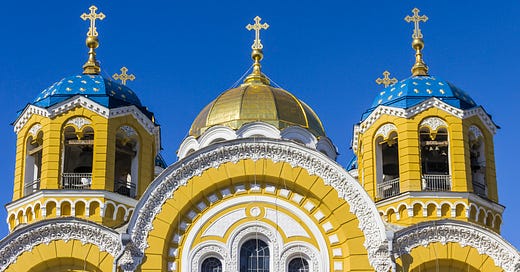

THIS: “Peter’s response, then, isn’t just checking off a theological box, but a declaration of commitment to the Way of Jesus, 👣 not just as a belief system, but as an actual WAY of bringing the Kingdom on earth as it is in heaven. 👣 To call Jesus God’s Messiah/Christ, as Peter does here, isn’t just a claim about Jesus; it’s also a claim about God. For Jesus’s earliest followers this declaration was a way of affirming that Jesus’s message of ❤️nonviolence, 🥖🐟 abundance, 💞generosity, ☮️compassion, and ☯️inclusivity align with the very character of God.”
When I read your explanation of Caesarea Philippi I immediately thought of the Trump Tower sign in Manhattan or Las Vegas. The beacons to the zealots. Then, I saw the beautiful tiny shells Diana shared with us, reminding me of the shells my daughter and I would collect at the beaches in SoCal and I agree, “awe needn’t be big and dramatic...Jesus’s building plan included mustard seeds, yeast, pearls, lilies of the field...” And I know his building plan includes each one of us in our corner of the world, seeking a small nugget of inspiration to keep our Holy Spirit energized! Thank you, friends of The Cottage, for joining me on this field trip in my heart today.
Thank you for breathing new life into this passage, Josh. In answer to your question regarding how I might choose, this came to mind:
As for me and my house
we will serve Jesus’s Peter
with abiding love and grace
as our guide and meter.
For engendering respect and awe for the small and mundane is
for me
why Jesus came
His example to all
left no one behind or
the same.